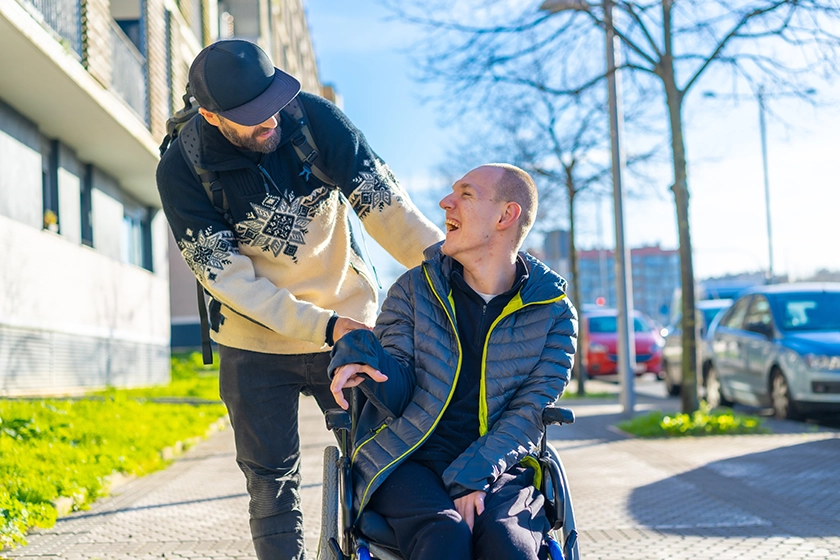What is Gambling?
Gambling (or betting) is the wagering of something of value (typically a sum of money) on an event with an uncertain outcome for the chances to gain another thing of value. The person who guesses the correct outcome of the event is the winner and gains value, while the other person loses value.
What is Problem Gambling?
Problem gambling (or gambling disorder) is any gambling behavior that compromises someone’s personal or family relationships, vocational pursuits, or ability to meet their financial obligations. This can cause significant distress over time. If you or someone you know might need help with problem gambling, call the Virginia Problem Gambling Help Line at 1-800-GAMBLER (426-2537) or 888-532-3500.
Where can someone get help with problem gambling?
Virginia problem gambling help line: 1-800-GAMBLER (426-2537) or 888-532-3500
Gamblers anonymous: www.gamblersanonymous.org
GamAnon is a 12-step program for problem gambling: www.gam-anon.org
GamTalk is a 24/7 moderated online peer support forum: www.gamtalk.org

Signs and Symptoms of Problem Gambling
If you answer yes to at least four of the following symptoms in a 12-month period, you may have a Gambling Problem.
Needs to gamble with increasing amounts of money in order to achieve the desired excitement.
Is restless or irritable when attempting to cut down or stop gambling.
Has made repeated unsuccessful efforts to control, cut back, or stop gambling.
Is often preoccupied with gambling (e.g., having persistent thoughts of reliving past gambling experiences, handicapping or planning the next venture, thinking of ways to get money with which to gamble).
Often gambles when feeling distressed (e.g., helpless, guilty, anxious, depressed).
After losing money gambling, often returns another day to get even (“chasing” one’s losses).
Lies to conceal the extent of involvement with gambling.
Has jeopardized or lost a significant relationship, job, or educational or career opportunity because of gambling.
Relies on others to provide money to relieve desperate financial situations caused by gambling.

Beyond the Bet Campaign Toolkit
Beyond the Bet campaign is an initiative created by the Department of Behavioral Health and Developmental Services (DBHDS), Omni Institute, and workgroup members that consisted of various prevention staff from Community Service Boards (CSBs) across the state. Please note that if you are a CSB that is receiving problem gambling funds, disseminating this campaign is required.
The campaign is for the general public, with a specific focus on young adults, aiming to raise awareness about the risks and realities of sports betting. This initiative promotes thoughtful and informed decisions by highlighting protective factors and advocating for responsible gaming and gambling, steering clear of fear-based messaging and stigma.
Problem Gambling Treatment and Support Fund
The Problem Gambling Treatment Support Fund dashboard contains data on reimbursements made to individuals in Virginia for problem gambling treatment and peer recovery services via the Virginia Problem Gambling Treatment and Support (PGTS) Fund. These data only reflect individuals receiving financial assistance via the PGTS Fund and are not reflective of all individuals accessing problem gambling treatment and support services.
Gaming and Gambling
Impacts on Virginia Youth and Young Adults
For many, gaming and gambling is a form of entertainment, but for some people, it can become an addiction. It is important to understand the potential impacts of gaming and gambling on Virginia residents and what preventative measures exist to reduce negative outcomes.
Toolkit Materials
-
Beyond the Bet Radio Scripts
-
Beyond the Bet Toolkit
-
Trifold Brochure (8.5_ x 11_)
-
Social Media (Square and 4_5)
-
Internal Bus Boards (18”x36”, 21” x 11.25”, 21” x 11_, and 11” x 28”. )
-
Flyers (8.5_ x 11_)
-
Billboards (8′ x 20′ , 10’6_ x 22’9_ , 12′ x 30′)
-
Wallet Card (3.37_ x 2.125_)
-
Rack Card (9_ x 4_)
-
Logos
Annual Reports
Contact:
Donald McCourtney
Problem Gambling Recovery Services Coordinator
For information on the Problem Gambling Treatment and Support Advisory Committee, click here.






